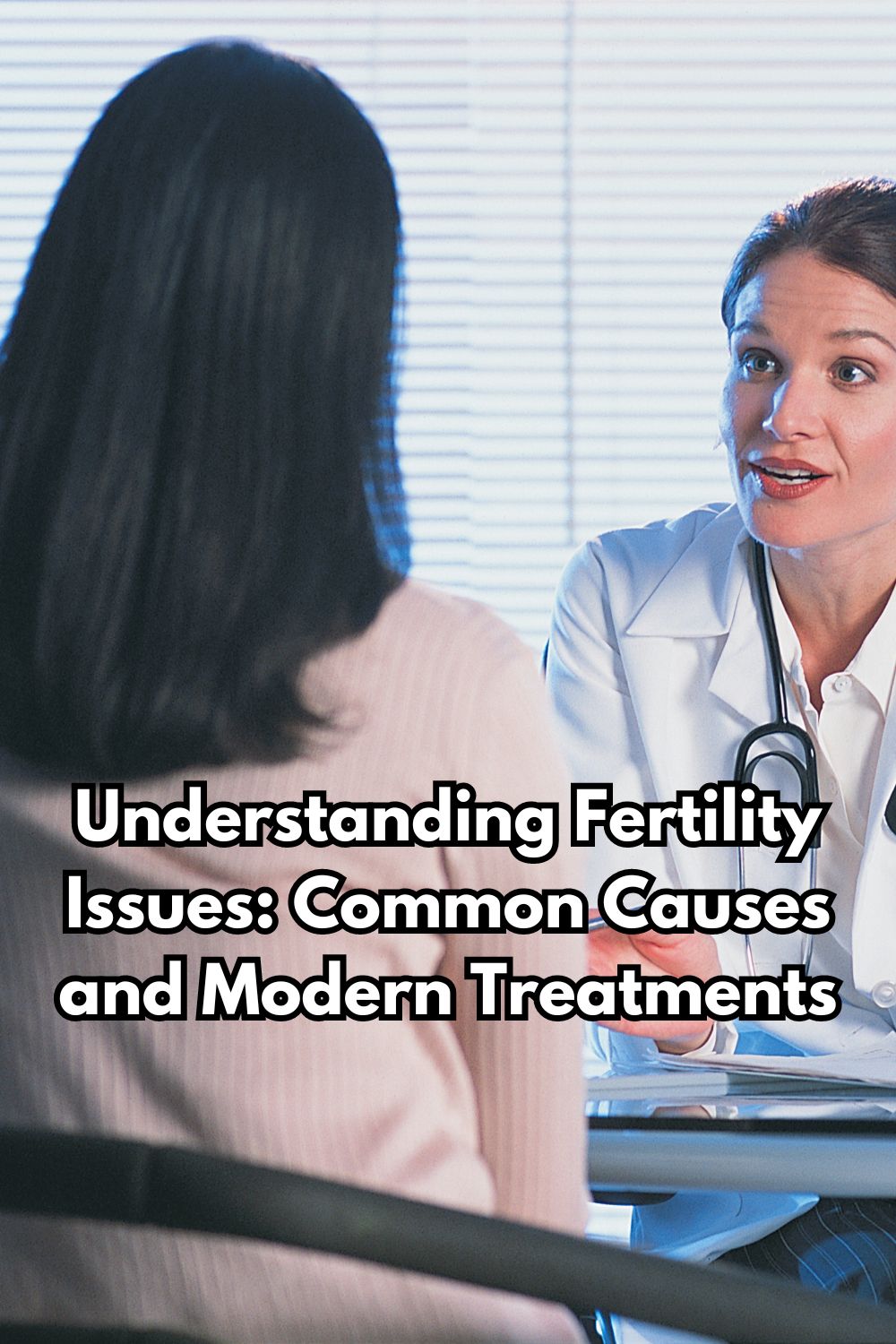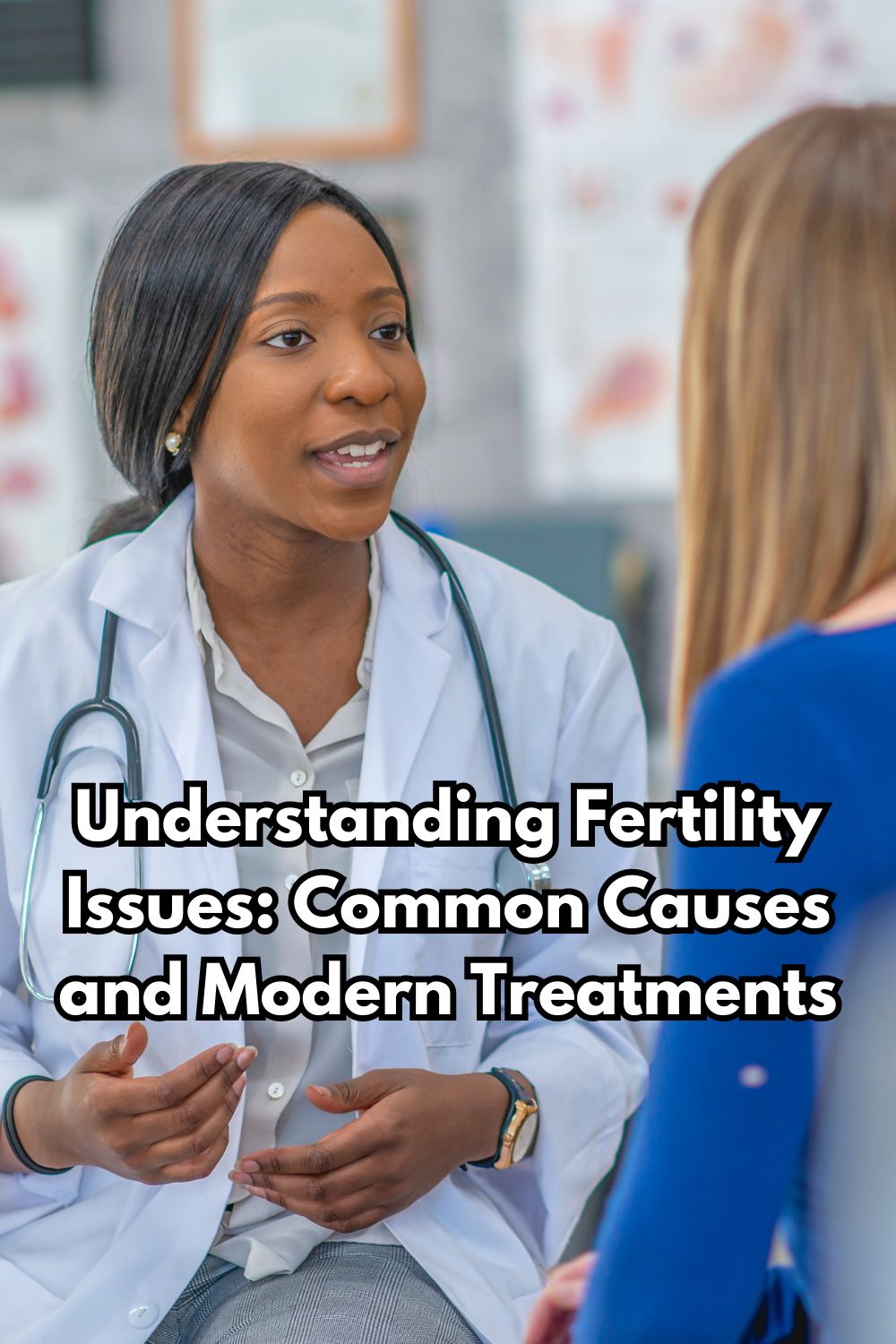Are you struggling with fertility? Here are some ways in Understanding Fertility Issues: Common Causes and Modern Treatments
Understanding Fertility Issues: Common Causes and Modern Treatments
Fertility issues can be a sensitive and complex subject for many couples. Gaining insight into the common causes and exploring the latest treatments available is crucial in providing hope and solutions to those affected.
This article delves into the myriad reasons why fertility challenges occur and highlights the latest advancements in treatments that are helping couples conceive.
Causes of Fertility Problems
Fertility problems can affect both men and women and are influenced by a variety of factors. Here’s a closer look at some of the most prevalent causes:
Hormonal Imbalances: In women, conditions like polycystic ovary syndrome (PCOS) and thyroid problems can disrupt hormone levels, affecting ovulation. In men, an imbalance of testosterone and other hormones might impact sperm production.
Age: Fertility naturally declines as people get older. Women’s egg quality and quantity decrease significantly after the age of 35. Men also experience a gradual decline in sperm quality and motility with age.
Lifestyle Factors: Smoking, excessive alcohol consumption, extreme weight gain or loss, and excessive physical or emotional stress can impair fertility in both genders.
Structural Issues: For some, the cause of infertility is related to physical problems with the reproductive organs. This could include blocked fallopian tubes in women or varicoceles in men, which is an enlargement of the veins within the scrotum.
Medical Conditions and Treatments: Certain medical treatments, such as chemotherapy and radiation, can have detrimental effects on fertility. Other health conditions like diabetes and autoimmune diseases also play a role.
Modern Treatments for Fertility Issues
The advances in medical science have led to the development of numerous effective treatments that cater to various fertility issues:
Medication: There are fertility drugs available that can stimulate ovulation in women and treat hormone imbalances in men. These medications are often the first step in treatment.
Assisted Reproductive Technology (ART): Techniques such as in vitro fertilisation (IVF) and intracytoplasmic sperm injection (ICSI) have revolutionised fertility treatment, offering hope to those who may not have succeeded with other methods.
Surgery: For structural issues, such as blocked tubes or endometriosis in women, or varicoceles in men, surgery may be recommended to improve fertility chances.
Lifestyle Changes: Often, making changes to one’s lifestyle is advised alongside other treatments. This includes adopting a healthy diet, managing stress, quitting smoking, and reducing alcohol intake.
Choosing the Right Treatment
Deciding on the best treatment depends on the specific causes of infertility and the preferences of the couple.
It’s essential to consult with specialists who can provide a tailored treatment plan based on individual needs.
Visiting a reputable fertility clinic can help ensure you receive comprehensive care and the most advanced options available.
The Importance of Support and Counselling
Dealing with fertility issues can be emotionally challenging. Many couples benefit from counselling and support groups where they can share their experiences and emotions.
Mental health support is an integral part of the fertility journey for many, providing resilience and coping strategies during these trying times.
Future Prospects in Fertility Treatments
Research into fertility treatments is ongoing, with new technologies and methods continually being developed.
Innovations such as gene editing, improved IVF techniques, and advances in reproductive genetics hold promise for even greater success rates in the future.
Modern medicine continues to make strides in treating infertility, offering numerous possibilities for effective solutions.
Whether through medication, lifestyle changes, surgery, or assisted reproductive technologies, there is hope for many to overcome their reproductive challenges.


Leave A Reply!